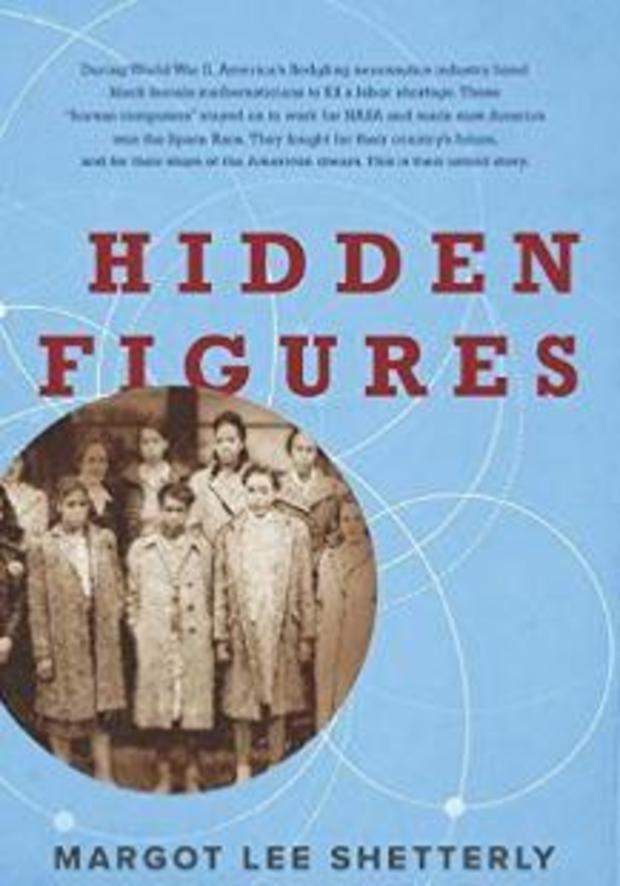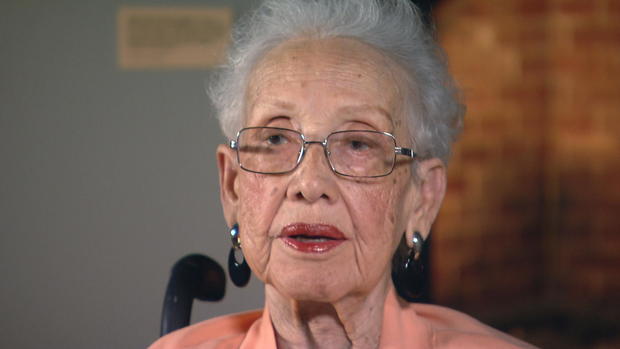The "human computers" who helped NASA win the space race
It was a race to secure America’s future at the forefront of space, fueled by men brave enough to travel where no one had gone before. The astronauts were superstars and engineers the stuff of movie legend.
But America’s triumph in the space race was made possible by another group the country didn’t see, reports CBS News correspondent Jan Crawford. They were called “human computers,” women -- many of them African-American -- hired by NASA to hand calculate propulsion, lift, thrust and trajectory.
“They had to make sure that the planes were safe, that the planes were fast, that they were efficient, that the astronaut not only went out into space but that he came back safely,” author Margot Lee Shetterly said.
“This was life or death,” Crawford said.
“This is life or death. This is the importance. You do the work right. You do it right the first time,” Shetterly said.
As the daughter of a NASA scientist, Shetterly was raised in Hampton, Virginia, the same town where these women once worked. It was a hidden history that had been staring her in the face.
“It’s not a first or an only story; it’s a story of a group of women who were given a chance and who performed and who opened doors for the women who came behind them,” Shetterly said.
Shetterly’s new book, “Hidden Figures: The American Dream and the Untold Story of the Black Women Mathematicians Who Helped Win the Space Race,” and its upcoming movie is the story of how a small band of black women joined the space program in the 1950s and ‘60s, defying female stereotypes and challenging a segregated system.
One of those women was Katherine Johnson. On her 98th birthday, she still lives
by the same motto her father told her when she was young.
“You’re as good as anybody here,” Johnson said.
“And you took that to heart,” Crawford said.
“Yeah, and you’re no worse, you’re no better,” she said.
At NASA Johnson calculated the trajectory of Alan Shepard’s 1961 space flight, verified the numbers guiding John Glenn’s orbit, and in 1969, her numbers helped the Apollo mission land on the moon.
“There was no question that every single day, every number, every research report, everything that they did was also directed at expanding the concept of what was possible for people who looked like them,” Shetterly said.
Working in the Jim Crow South, these women were relegated to the back of the
bus to get to work. They couldn’t use the same bathrooms or sit at the same
lunch tables.
Langley’s newly-diverse
workforce made it not just a flight laboratory, but a social experiment.
“Do you think that there’s something about math, that it doesn’t matter? It’s
the equalizer?” Crawford asked.
“In math, when you’re working with it, what you’re doing is either right or it’s wrong,” Johnson said.
Leland Melvin started at NASA just a few years after Johnson retired.
“Her name was actually spoken kind of like in reverence, like, ‘It’s Katherine Johnson,’” Melvin said.
Melvin was an engineer and an astronaut who flew on two space missions.
“They were the barrier breakers that helped other people see that there were other opportunities at NASA.… It takes a few people to establish a foothold, no matter what that foothold is,” Melvin said.
It’s a story about the struggle
for the American Dream, Shetterly said.
“What I really hope this
story does is fuse these different histories to the American Dream. Just
because the protagonists of this book are black women does not mean that this
is in any way less an American story,” she added.
Watch “CBS This Morning” on Sept. 12 for the first live broadcast from the new Smithsonian museum, the National Museum of African American History and Culture in Washington, D.C.

